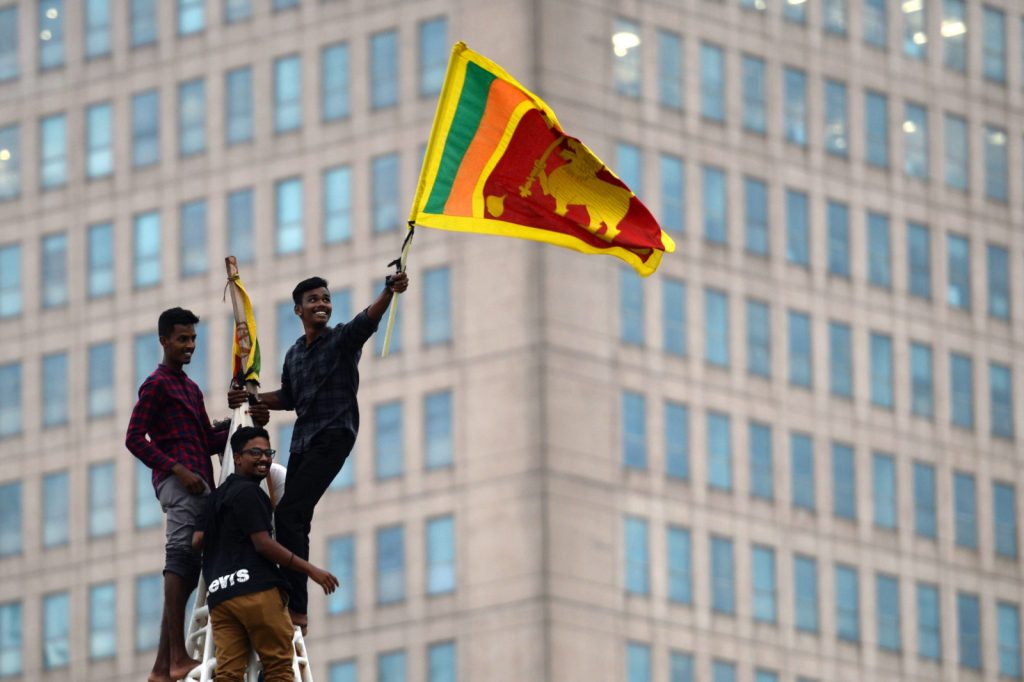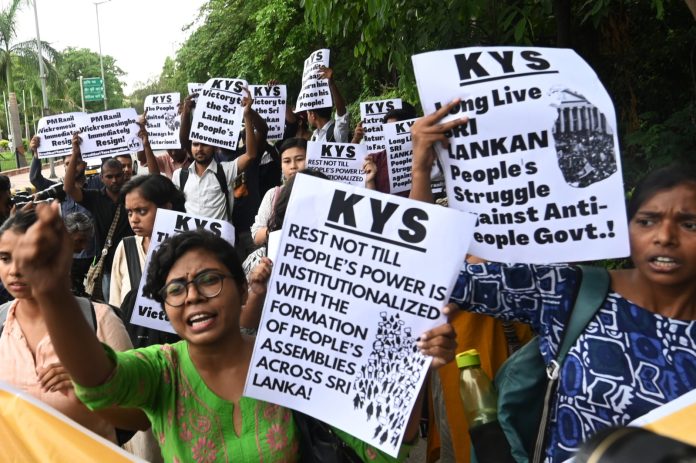Sri Lankan President Gotabaya Rajapaksa’s resignation showed to the world that the people of the country are “not ready to be cheated.”
“The people have taught the politicians and political leaders a lesson and the message is very clear,” said Sri Lankan Catholic missionary priest Rohan Domenic.
The Claretian missionary, who works with the UN council for the religious, told LiCAS News that through continuous and sustained protests the people showed that “they are not ready to be cheated.”
He said that most Sri Lankans do not like to go out in the streets and protest. “They normally try to tolerate and manage their lives whatever happens in the country,” said Father Domenic.
“Now, they are not ready to listen to the sweet words of their leaders, but they demand action with their own words,” he said in an online conversation with LiCAS News.
The priest said that young people, who have become the visible leaders in recent protests, made the country’s political leaders understand “that they are of a different generation.”
On Friday, Sri Lanka’s parliamentary speaker announced that President Rajapaksa’s resignation had been accepted after the leader fled the country earlier this week.
“Gotabaya has legally resigned” with effect from Thursday, said Mahinda Yapa Abeywardana after Rajapaksa notified the speaker from Singapore that he was stepping down.
The president fled Sri Lanka on Wednesday, after protesters overran his palace on the weekend, heading first to the Maldives and then Singapore.
Rajapaksa would be the first president to resign since Sri Lanka adopted a presidential system of government in 1978.
A small but jubilant crowd, some waving the national flag, danced and chanted in celebration outside the presidential secretariat as news of the resignation broke.
“This is a monumental victory,” said protester Harinda Fonseka. “But it is only a first step.”
Father Domenic, however, said that although the president’s resignation is “a victory for the people,” the former leader still have to face justice in the country.
“Everyone wants justice,” said the priest, adding that Rajapaksa’s administration was responsible for the abductions, disappearances, torture and killings of thousands of Tamil people.
“The Tamils are demanding that he must be brought to trial in the International Criminal Court and made accountable for the war crimes,” said Father Domenic.

The most recent Amnesty International report noted that the government of Sri Lanka continued its crackdown on dissent, targeting multiple groups.
“Impunity continued in a number of emblematic cases. Excessive use of force and brutality by law enforcement officers were widely reported, and there were deaths in custody,” said the report.
The UN Human Rights Council has earlier set up a mechanism to consolidate evidence of serious human rights violations for future prosecutions after the Sri Lankan government withdrew its support for transitional justice.
The Amnesty report also said that the Prevention of Terrorism Act continued to be used to target critics from minority communities through arbitrary arrests and prolonged detention.
Discrimination and marginalization of the Muslim community also increased because of government policies specifically targeting them.
“Making the president resign and allow him to flee the country was not the goal of the people,” said Father Domenic.
Cardinal Malcolm Ranjith of Colombo earlier appealed for peace and requested political parties in the country to act with restraint
Rajapaksa is accused of mismanaging the island nation’s economy to a point where it has run out of foreign exchange to finance even the most essential imports, leading to severe hardships for its 22 million people, with four out of five Sri Lankans skipping meals.
Sri Lanka defaulted on its US$51-billion foreign debt in April and is in talks with the IMF for a possible bailout.
The island has nearly exhausted its already scarce supplies of petrol with the government ordering the closure of non-essential offices and schools to reduce commuting and save fuel. – with a report from AFP









